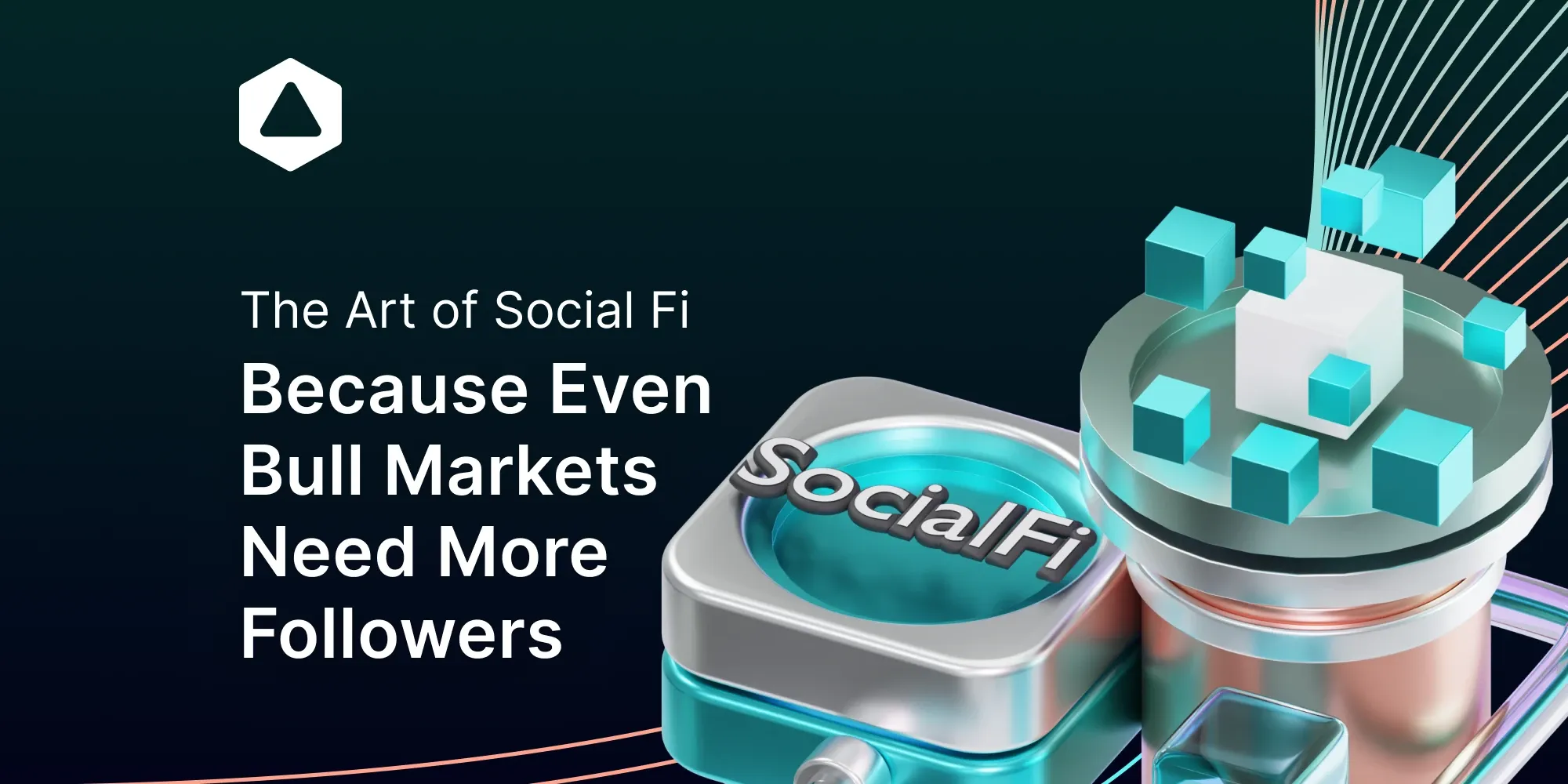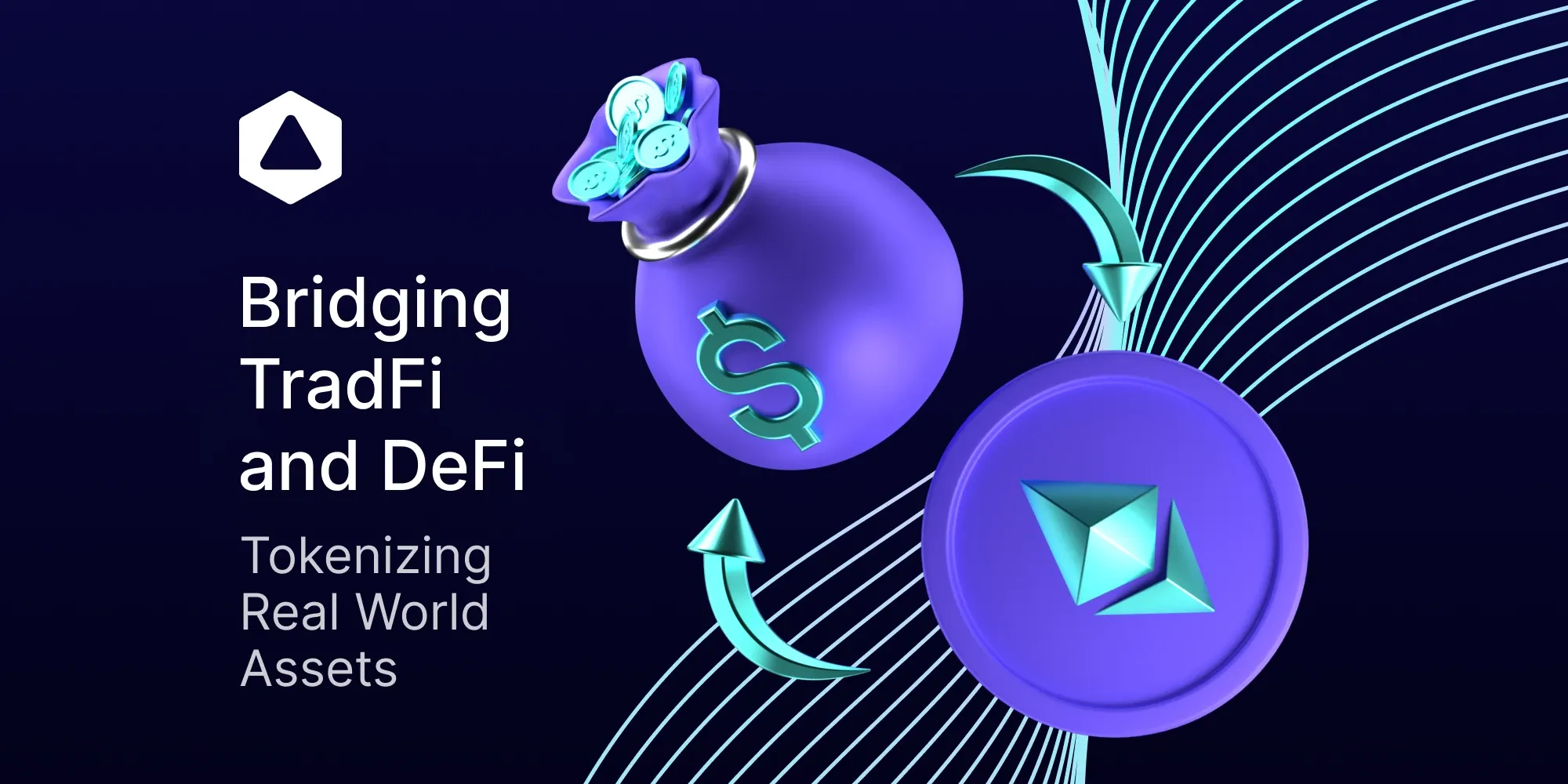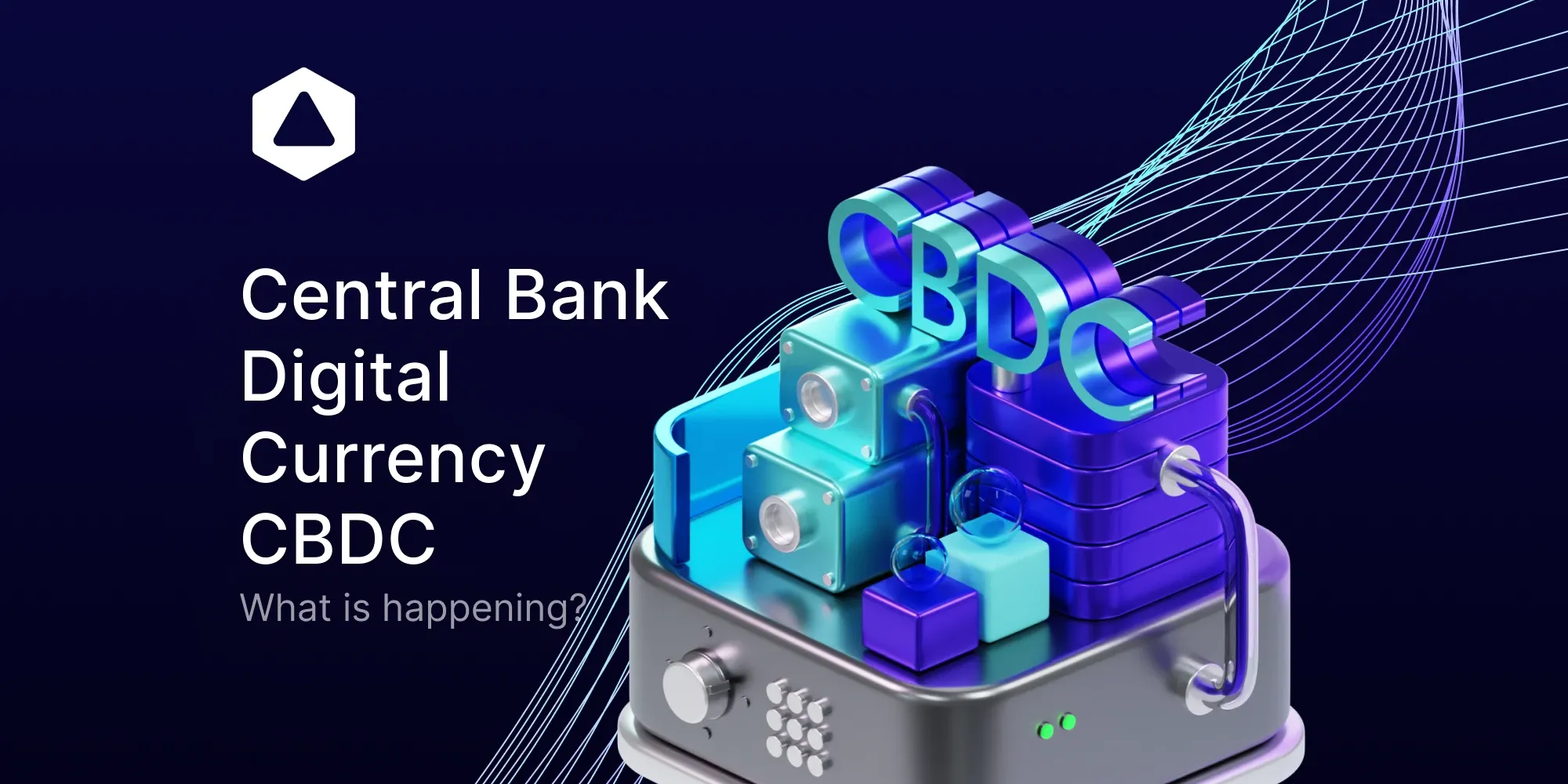Crypto in Transition: Where is the Industry Heading in 2024
The crypto world continues evolving in 2023 with new use cases across sectors. This article explores trends like AI, decentralized social media, DAOs, blockchain climate initiatives, CBDCs, metaverse NFTs, and enterprise blockchain adoption.

As the years slowly come to an end, the crypto ride never stops, it keeps on going. We can leave but never get off. We take a look at the direction this turbulent ride is heading, as it impacts several lives and sectors. In this article, we examine what the blockchain environment has in store for us and what fronts it is being developed and used on, perhaps in sectors we didn't previously see as valuable but will be in the future.
AI Impact on Crypto
The emergence of AI, such as ChatGPT, has thrust everything AI-related into the crypto spotlight. AI and blockchain are shaping the future together. AI enhances security in crypto and makes smart contracts more intelligent, though possibly less immutable. AI analytics empower traders and investors, offering actionable insights and forecasts.
However, misinformation and AI-generated content could also drive new projects or scams. Its impacts are many and whether perceived as positive or negative, depends on your perspective. Undoubtedly, it will initiate a new cycle and, along with blockchain, significantly influence many industries.
While AI holds promise, current crypto AI projects often lack substantive products behind the buzz. The technology shows potential, but in the short term, hype may eclipse real-world utility.
Decentralized Social Networking
In 2022, an impressive 4.74 billion social media users came online. Social media platforms have made great strides connecting people worldwide.
However, familiar issues like privacy violations, data misuse, and content relevance persist. This is where blockchain could prove transformative. Blockchain technology can render social media data untraceable and unreplicable, even if deleted.
It also enables users to store data more securely while retaining ownership. With blockchain, content relevancy power shifts back to individual creators rather than platform owners. More on Decentralized Finance in our article below.

The Decentralized Autonomous Organized future
A decentralized autonomous organization, also known as DAO, is a type of organization that knew this hype in the last cycle, especially in DeFi season. In short a DAO is managed by a blockchain where members pool their funds and then vote on decisions according to their stake of pooled funds. When decisions have to be made, a majority has to comply, like in a democratic way, a decentralized way.
In a typical organization, the highest in the hierarchical ladder collaborates perhaps with executives and then defines the direction and finances and passes it down for implementation. Members of the DAO fulfill their obligations more in a fair manner by actively engaging in collective decision-making processes. Although that is the underlying intention.
When DAO City?
Well, now we have seen several attempts of crypto pioneers, creating states or Bitcoin safe havens with all the money they made on early investments. But can this new form of decentralized organization extend their influence beyond the internet?
Can it help with administering and contributing to urban development of a city? Well, smart minds are working on this. A complete shift into how social network services operate, where inhabitants acquire ownership interests through active participation and contributions.

Use Cases DAO
Besides big plans of cities or re-organizing traditional structures, the decentralized shift can be implemented in several other use cases, such as:
- DAOs can transform voting procedures, increasing voter engagement and security, all while enhancing transparency.
- They have the potential to facilitate equitable and transparent budget allocation for a range of programs and services, from healthcare to education.
- Using DAOs could decentralize project management while maintaining compliance with rules and regulations.
Real World Assets on the Blockchain
Real-World Assets (RWAs), including both tangible and intangible assets, are now accessible on blockchain-based platforms, shifting profits to DeFi participants worldwide. The integration of RWAs into DeFi blurs the line between purely synthetic products and real-world effects. As a result, DeFi can begin to compete or operate similarly to traditional finance.
If DeFi seizes even a small portion of the traditional finance market, it could significantly raise the total crypto market cap, given the trillions of dollars' worth of equities. Several DeFi protocols are focusing on RWAs today, but they nonetheless face criticisms, primarily due to transparency issues and the contradiction of introducing permissioned collateral into a permissionless system. Read our in-depth article below. We guarantee that interesting times lie ahead.

Blockchain and the Public Sector
The implementation of blockchain technology in various sectors have proved their usefulness over time. Now it is time or perhaps long overdue to use these features for a government where it can their data security and save significant time, money, and resources.
There are many ways that blockchain technology can help the government as more and more there will be strived to make governments more open, accountable, and trustworthy. With transparency this also can be attained.
Examples of blockchain used public services
Several examples were provided:
- Land registries: Some countries like Georgia are putting land registries on the blockchain to create permanent, immutable records. This helps prevent records from being lost if there is regime change.
- Notarization: Blockchain-based notarization of documents is being explored to validate authenticity.
- Education: Projects utilizing blockchain for credentials and micro-credentials between educational institutions in different countries are being developed. This allows credentials to be verified across borders.
- Healthcare: Vaccination records and proofs are being examined as a blockchain use case. This would enable easy access to vaccination history across healthcare systems.
- Identities on the Blockchain: Decentralized digital identities are a technological next step, where the user could be in control of their identity without reliance on any centralized authority.
Blockchain Combatting Climate Change
As mentioned in previous articles, blockchain can play a pivotal role in addressing climate change issues faced today in mainstream media.
Several ways that are perfect examples are smart contracts automation that refunds insurance payouts based on tamper-resistant weather data, monitoring comprehensive supply chain information to empower consumers to make environmentally friendly choices, and rewarding sustainable activities.
But more use cases can be envisioned along the same lines—the possibilities stretch as far as one can imagine.

Blockchain's ability to design incentive structures helps by rewarding or incentivizing actions that grow ecological resources.
- Managing Water Supply: A token system could be created where people earn tokens for conserving water. These tokens could be used or traded like money, incentivizing conservation.
- Managing Carbon Emissions: A token economy could track carbon emissions and sequestration. People would pay to emit carbon and earn tokens for sequestering it. Net zero carbon is attained once every token has been used.
- Managing the Natural Capital of a Community: Tokens representing a community's natural capital could be issued. People earn tokens for ecologically beneficial actions, incentivizing sustainability. Those wanting to use more resources would have to purchase tokens from others.

Central Bank Digital Currency
Central Bank Digital Currency, often referred to as CBDC, the central bank of a nation's fiat currency in digital form, is coming. We are going to go cashless! Rather if we like it or not, blockchain has offered the perfect runway for this new form of means of payment. But if we change our view, maybe this isn't as bad as it seems.
When we take a look at our bank account balance, that is essentially an IOU from your bank promising to hand you actual cash if you ask for it. This system is prone to fail, and you may lose your money if the bank fails. CBDC is an official currency that the central bank has issued, if you like them or not, that is another question. But if banks fail, your money won't be in danger. Only if the central bank changes its policy you will...

Financial inclusion
If we look at these unavoidable changes in the way we're going to pay, in a positive way, we see that CBDCs could expand access to digital payments for unbanked populations. And since CBDCs only require a mobile phone app to transfer, and don't require physical banking, it would not be applied and the unbanked can start using their phones in a right way.

Virtual Worlds and Metaverse
Not to forget the hypes of 2021, where companies were massively directing their efforts on developing virtual worlds and communities, not only in order to obtain some sweet funding rounds but also because they sincerely believe this is the future we are going to live in.
All things move onto a more virtual immersing experience and the metaverse, or virtual world that allows people to create, communicate, and share experiences from anywhere in the real world into their own self created world.

Real Use Cases NFT in Virtual Worlds
Virtual museums and galleries are created to highlight NFT art collections. The role of NFT's becomes clear when companies start to embark on this digital journey. Collectors of this art can curate and share their digital art in immersive 3D environments using these virtual venues.
Blockchain and Enterprises
As we've seen, blockchain can be used not only in government or public services, but is just like these organizations perfectly suited for any enterprise. It is quickly becoming an essential component of business operations, as it has numerous advantages that can help improve processes. Let's look at some examples that firms will likely work on in coming trends:
- Reducing Time and Costs for Multi-Party Processes: Businesses may use blockchain to automate operations and stakeholder data sharing. By doing this, manual operations' friction, errors, and delays are eliminated.
- Getting Rid of the Risks Associated with Intermediaries: Blockchain eliminates the need for central middlemen, previously required to organize interactions between various parties. Doing this removes the costs, points of failure, and risks associated with depending on intermediaries.
- Enabling New Business Models and Ecosystems: Blockchain enables new ways of exchanging value and assets between enterprises. It allows companies to leverage network effects and explore new business models based on tokenized assets or decentralized ecosystems.
Could DAOs Replace Corporations?
DAOs provide a combination of socialist and capitalist ideas. Aspiring business owners should weigh the pros and downsides of starting a DAO or implementing structures of it over a more traditional company structure.
We see that DAO's also have their weak points, where whales manipulate decisions because they simply have the most voting power. Is it worth it, or are there any alternatives for this structure to avoid abuse?
Conclusion
A new year for crypto means new use cases across the board for various businesses, startups, and individual endeavors. As the line between the internet and real world slowly begins to fade, and more and more businesses adopt these new products in the coming years, it is only a matter of time before some of these technologies breakthrough. As they say, never bet on one horse.

Connect with Bitfinity Network
Bitfinity Wallet | Bitfinity Network | Twitter | Telegram | Discord | Github

*Important Disclaimer: While every effort is made on this website to provide accurate information, any opinions expressed or information disseminated do not necessarily reflect the views of Bitfinity itself. The information provided here is for general informational purposes only and should not be considered as financial advice.



Comments ()